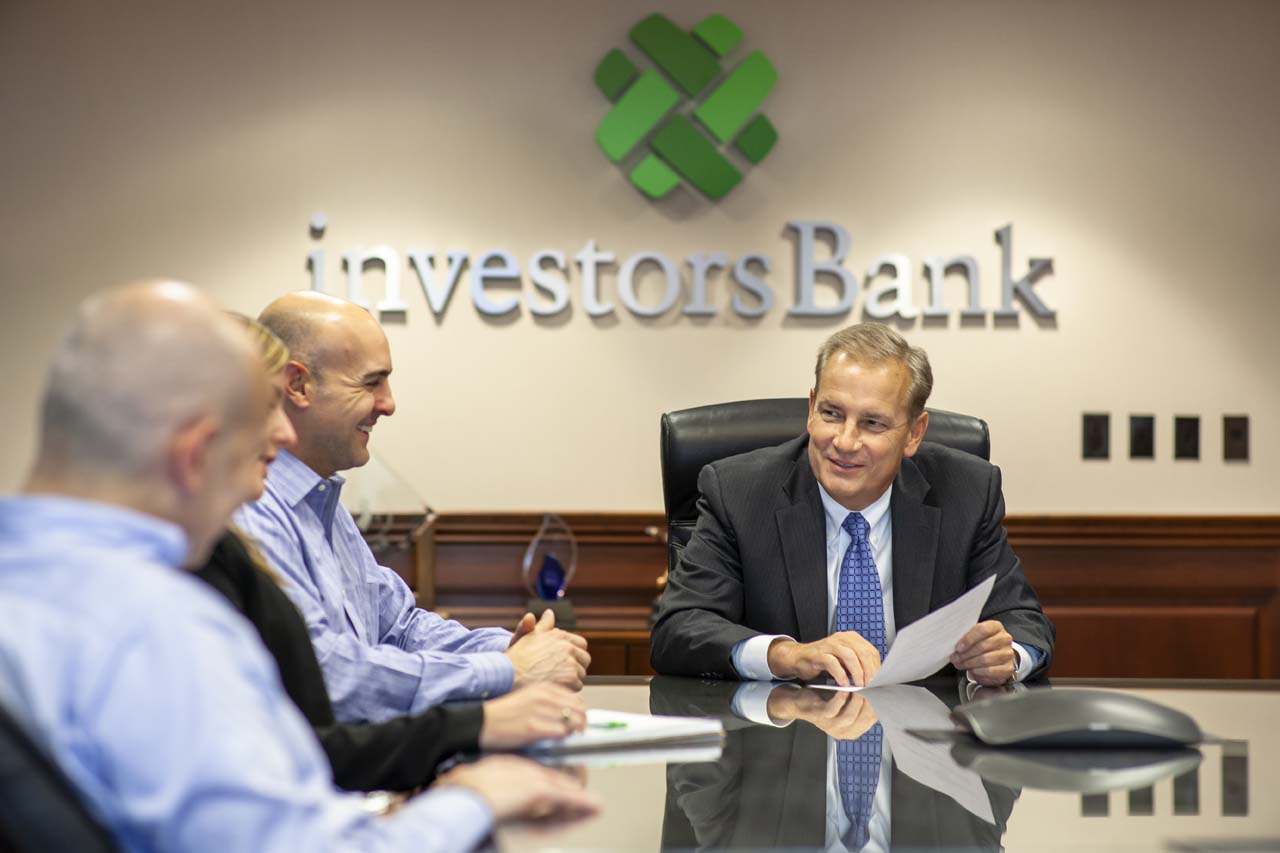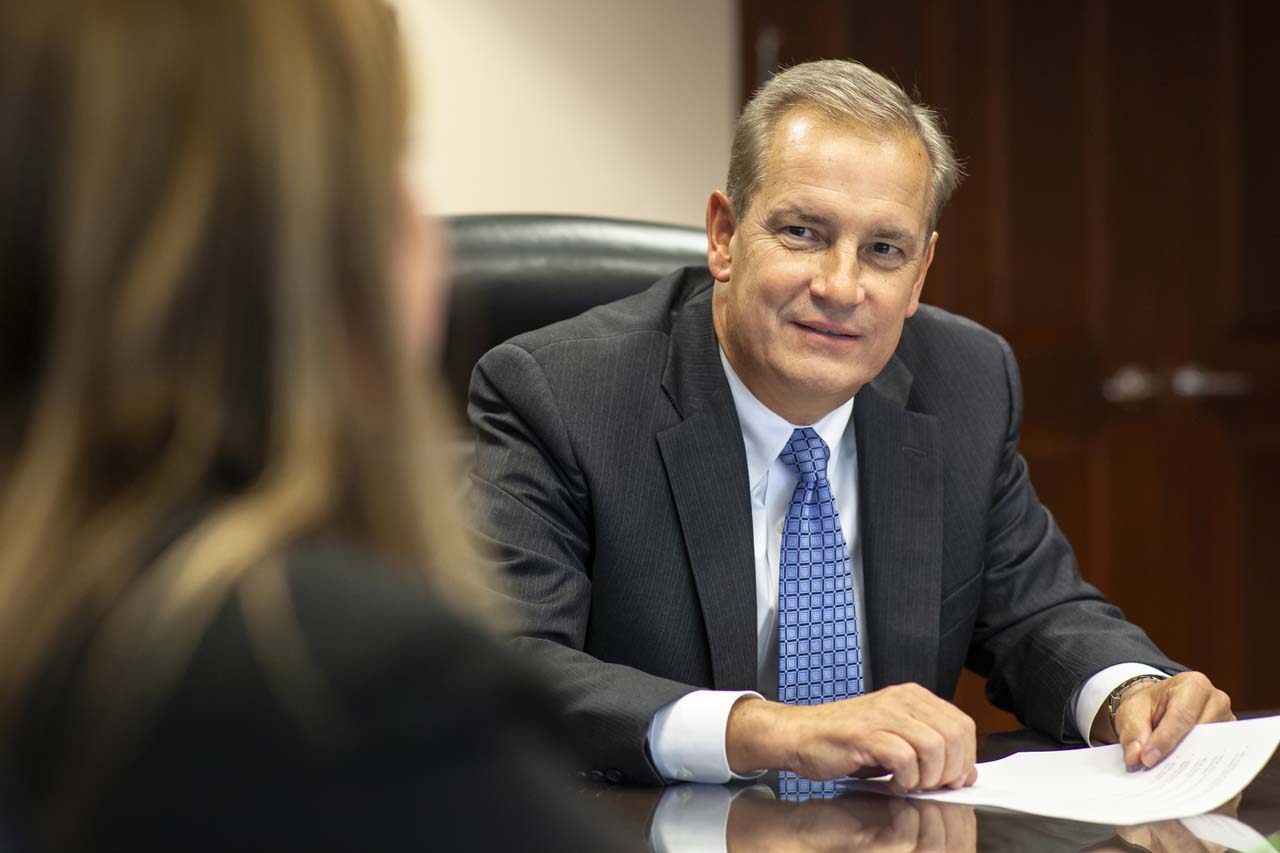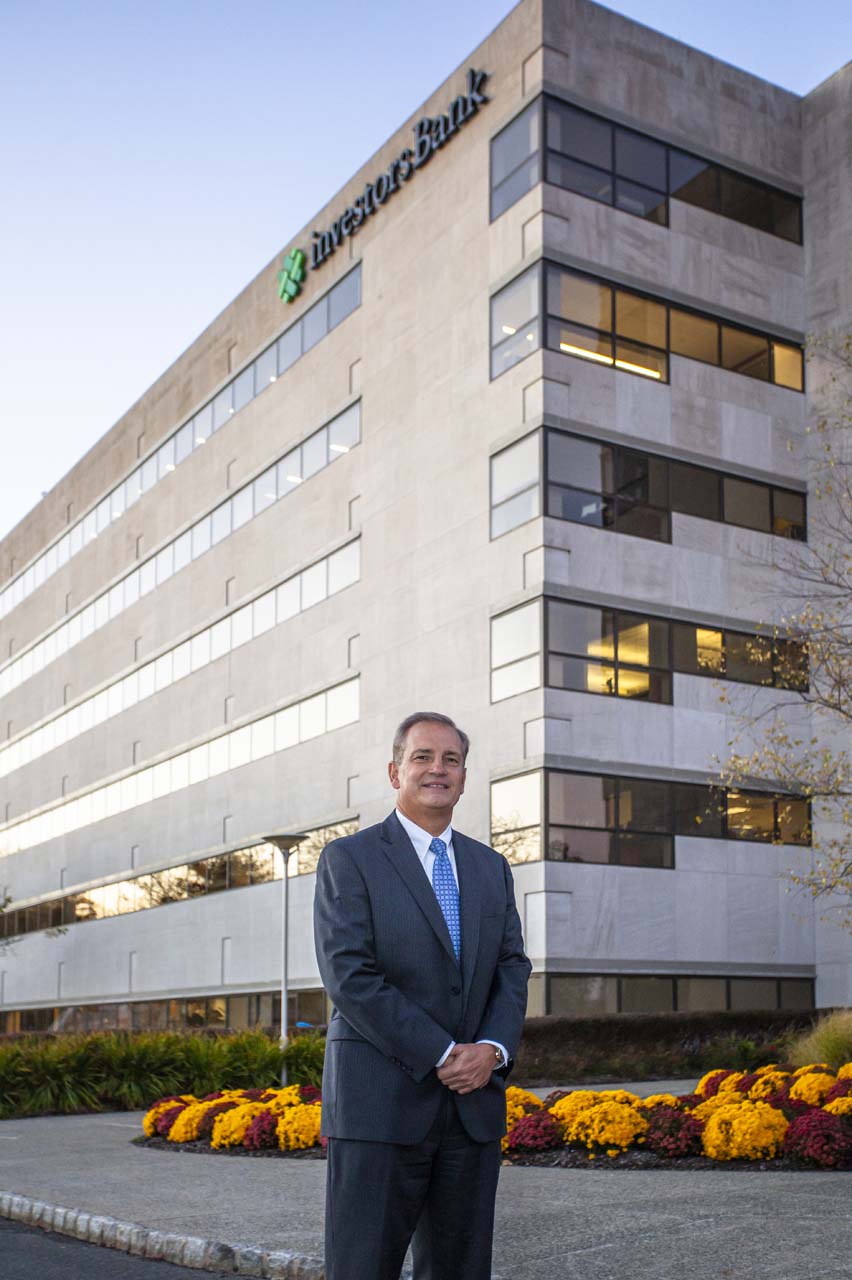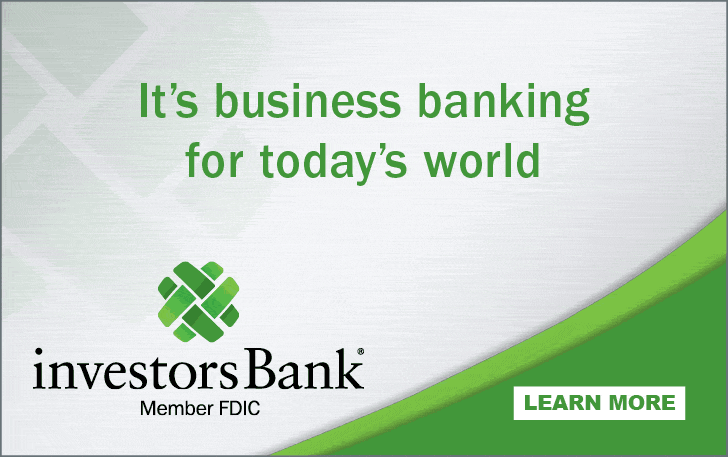IN THE PAST 15 YEARS, THIS NEARLY CENTURY OLD COMMUNITY BANK HAS TRIPLED ITS BRANCHES, MULTIPLIED ITS ASSETS, AND TURNED ITSELF INTO A FULL SERVICE FINANCIAL INSTITUTION
BY AMANDA McCOY • PHOTOS BY ROBERT NUZZIE
When Richard Spengler joined Investors Bank in September 2004 as a senior vice president, he had transformative plans in mind for the organization. At the time, the Short Hills based financial institution operated primarily as a wholesale bank, buying and selling residential mortgages. It had never issued a commercial loan in its 90 year history, and its primary deposit vehicles were certificate of deposit (CD) accounts.
“It was an opportunity to go to a bank that had a great reputation in the industry,” explained Spengler, who was coming off 21 years with First Savings Bank in Woodbridge, where he had worked his way up from loan management trainee to chief lending officer. “Investors Bank was very well known and financially strong, but it was somewhat sleepy. It didn’t have a good book of business, and I wanted to help turn it into a real bank, with customers and business clients.”
Spengler (now the executive vice president and chief lending officer) came onboard less than a year after the bank had brought in new management including Kevin Cummings as executive vice president and COO (now chairman and CEO) and Domenick Cama as chief financial officer (now president and COO) who had ambitions of expanding opportunities and realizing the business’s full potential. Investors Bank was sitting on $3 billion in securities; the new business plan was to put that money into loans.

“When someone dangled $3 billion in front me and said they want to turn it into loans, I found that very attractive,” said Spengler, whose first test in his new position was to convince a historically conservative board to approve commercial loans, a risky endeavor for an institution that had never ventured outside the residential mortgage market.
“Commercial loans come with a different risk appetite than residential loans,” Spengler said. “Typically, the roof over your head will be the payment you’ll make. Credit cards, for instance, have a much higher default rate because you will still have a place to sleep at night even if you can’t pay your credit card. But commercial loans also bring with them entirely different relationships things like cash management services and employee accounts. They snowball into deeper relationships.”
Spengler’s pitch was a success, and today, a little over a decade later, the bank has a portfolio of $22 billion in loans.
“Introducing commercial lending was big. We started with real estate loans, because that was the closest to what we were doing before,” said Spengler. “As time passed, we started making more loans and buying fewer securities. From there, we went to making more commercial mortgages, and that evolved into more complex types of loans, like construction loans, business loans with real estate, then business loans without real estate. We continued to grow as a full service commercial bank.”

The financial crisis of 2008 09 proved to be a pivotal moment. The bank had gone public just two years prior to raise capital for its commercial loan initiatives, and was in a financially secure position when the market plummeted. Because its commercial lending policy was just taking off, it didn’t suffer from problem loans. At a time when the industry was mostly paralyzed, Spengler and the leadership team saw opportunity.
“After the housing crisis started,” he said, “people weren’t able to get residential mortgages. This was a great opportunity, because that meant more people would be renting. We became a huge multi-family lender in 2009 and 2010…marketed aggressively to that segment and started making loans in the multi-family space. It’s a big part of our portfolio now. We made that conscious effort looking at the recession, and it has served us very well.”
Commercial lending hasn’t been the only area of growth. Investors Bank had fewer than 50 branches when Spengler joined the operation, and that number has since grown to 147, stretching from the Philadelphia area to Long Island. The company has expanded its offerings to include checking and savings accounts, money market accounts, IRAs, wealth management, investment, and retirement services, and small business accounts.
Getting the word out to potential customers was another challenge for the new leadership team in the mid 2000s. That meant better branch locations, more uniform branding, and time.
“In the industry, the bank had a great reputation, but outside of banking, not a lot of people knew us,” Spengler said. “We weren’t in ‘A’ locations; we were in retail centers, not on a corner with a drive up window. If you want people to bank with you because of convenience and location, they have to see you. So, we had to improve our real estate. Today, I don’t have to explain to anyone what Investors Bank is anymore we’ve created an identity. I think that’s the biggest thing we’ve accomplished.”

As the business continues to expand throughout the Garden State and beyond, so have its philanthropic endeavors. Since 2005, the Investors Foundation has put more than $38 million into charitable causes in New Jersey, New York City, and Long Island, from educational and community enrichment programs to military support and civil services. As a community institution, Spengler explained, it’s important for the bank to support the local community rather than just writing a check to national causes. Often, employees pick the causes, charitable events, and fundraisers.
“Our foundation is impactful not just because of the money and the size of what it gives out, but also because it supports our people,” he said. “We don’t give to large national causes, but rather to smaller grassroots efforts. It starts in our branches and includes organizations that our people believe in. We don’t just write checks; you have to be connected to the cause and get involved with it. Our employees recommend different organizations they see on the ground in their communities. There’s always a ton of emails floating around about an event the next weekend. The events are often oversubscribed, so you have to be quick. I’ll get back from a meeting and the event will already be full.”

Investors Bank
Corporate Headquarters: 101 JFK Parkway, Short Hills
855.422.6548 / investorsbank.com
